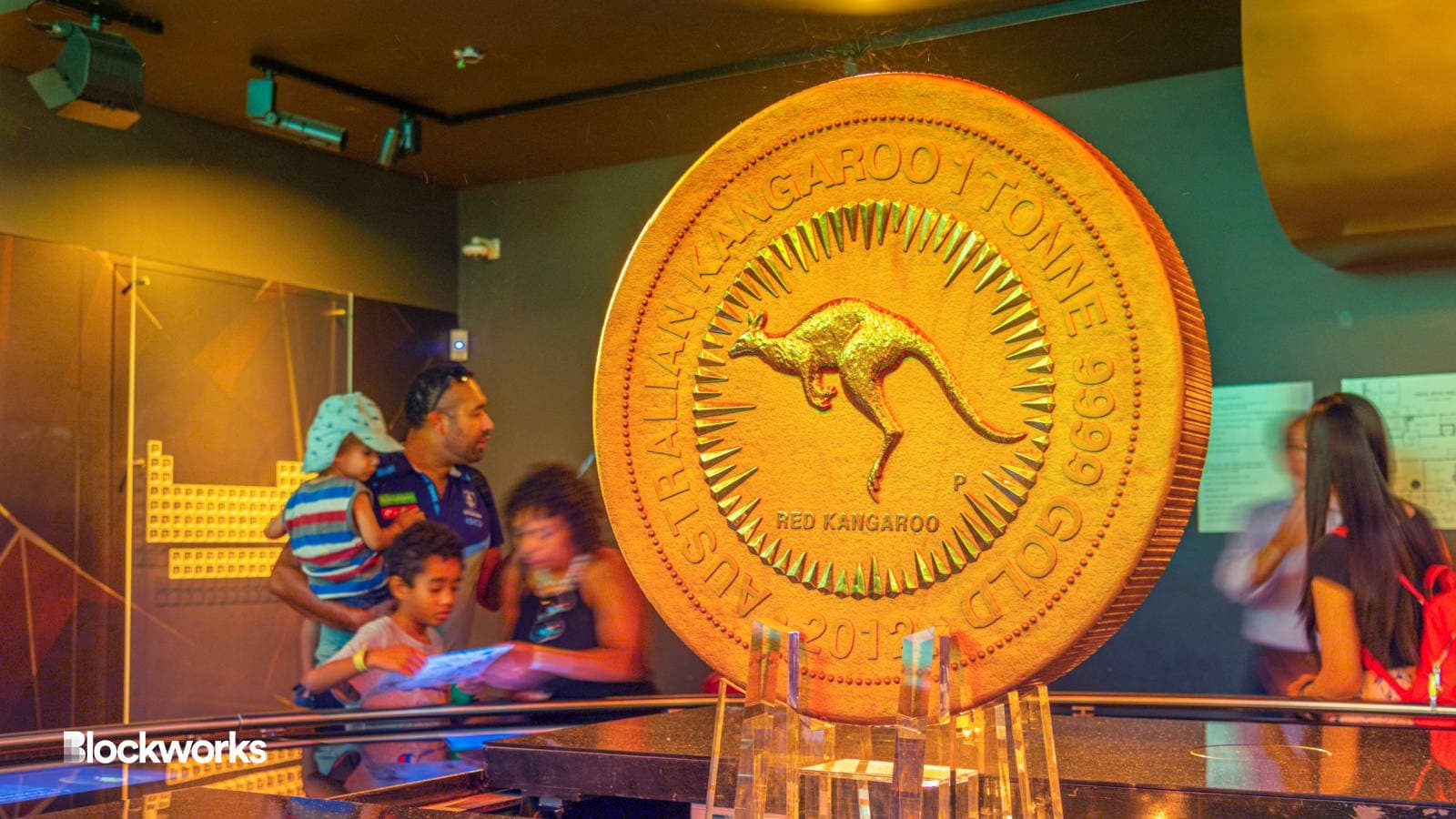Australia’s Gold-Backed Crypto Under Threat As Issuer Backs Away
A string of controversies has hit the Perth Mint, leading its crypto partner Trovio to cease support for gold-backed token PMGT

Shutterstock.com/trabantos, modified by Blockworks
Singapore-headquartered fintech startup Trovio is ending support for its gold-backed crypto due to alleged breaches of Australian and US laws by partner Perth Mint.
Perth Mint is the country’s official gold bullion mint, owned by the Western Australian government. Trovio (formerly InfiniGold), which also has offices in Sydney, Nassau and Amsterdam, launched the Perth Mint Gold Token (PMGT) in late 2019 on Ethereum, as an ERC-20 token.
Each PMGT is backed by the mint’s GoldPass certificates, which are in turn backed by physical gold stored at Perth Mint. PGMT holders can redeem their tokens for GoldPass certificates, which can be sold back to the mint or exchanged for other products.
Trovio marketed PMGT as an alternative to standard cryptocurrencies such as bitcoin and ether. But a string of controversies has hit the mint, leading to Trovio’s decision to back away from PMGT altogether.
The future of GoldPass, an adjacent service that enables users to buy, sell, and trade gold from their smartphones, is also in doubt, ABC News reported Monday.
The London Bullion Market Association had found Perth Mint sold gold bars that didn’t meet stringent rules set out by the Shanghai Gold Exchange, per a Four Corners investigation earlier this month.
A separate issue struck last September, when the mint acknowledged violating the US Model Commodity Code by storing clients’ gold in its vaults. It self-reported historic breaches of the code stretching back more than 25 years, affecting at least 900 accounts reportedly worth around $250 million at the time.
An AUSTRAC probe into Perth Mint was also reported in September. The Australian financial crimes agency is investigating the firm for potential anti-money laundering and counter-terrorism funding breaches.
Trovio winding down PGMT is noteworthy considering the token was apparently the first crypto deployed to a public blockchain backed by government-guaranteed gold.
Etherscan shows there’s currently 1,196 tokens in circulation across 255 holders, with a market capitalization of $2.3 million — much smaller than the other two primary gold-backed offerings, Pax Gold and Tether Gold, both of which command market values of around $500 million.
For the meantime, PMGT is still being promoted on Perth Mint’s website and there is a link to a Trovio-operated site that markets the product. It’s also unclear whether PGMT will wind down completely. A Perth Mint spokesperson told ABC News that the token is still available as the details of the mint’s exit from the project haven’t yet been finalized.
Jeff Yew, CEO of Australian digital asset manager Monochrome, told Blockworks the structure of the partnership and the centralized nature of the token meant its design has been problematic from the onset.
In PMGT’s case, a private company issued tokens derived from an asset held by another centralized organization. The benefits of using a decentralized governance structure are immediately canceled when a centralized agency is involved in a critical operational layer, he said.
“Gold’s physical nature means it cannot ‘live’ in the digital space without human central points of control and failures,” Yew said.
Updated Mar. 21, 2023 at 7:47 am ET: Updated headline, clarified Perth Mint context including potential future for PMGT.
Get the news in your inbox. Explore Blockworks newsletters:
- The Breakdown: Decoding crypto and the markets. Daily.
- 0xResearch: Alpha in your inbox. Think like an analyst.






